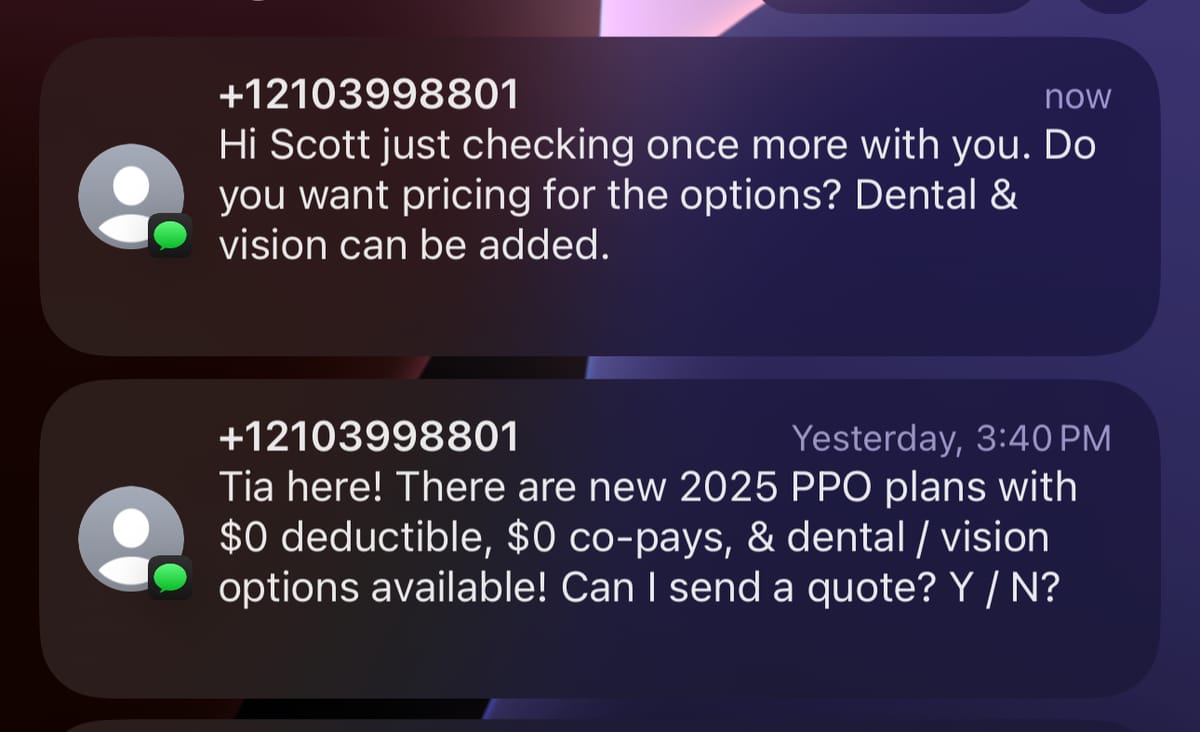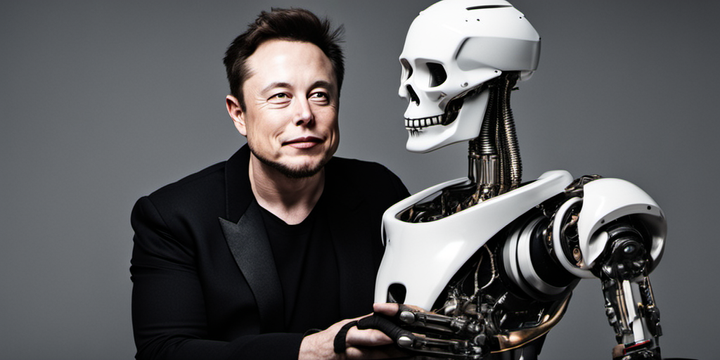Everything's A Scam
The goal for everything now is money for nothing and chicks for free.

We're living in the fin de siècle, the end of days and, well, the fourth horseman of the apocalypse was this guy...

...except that's not fair to Matthew Lesko. He actually sold something of value, if dubious value! In today's economy, a simple one-time exchange of money for a good or service is a stunning example of moral righteousness.
We don't do that here any more.
Now, there are tiers to today's market economy, arranged in a very simple diagram:

For example - computers. I'm currently typing this on an Apple Mac mini. I recommend them highly! They're well made, compact, run an operating system I like (you may strongly disagree and that's OK) and come with a fairly priced all-inclusive warranty, AppleCare. Apple also has a good (although not perfect) record of at least making vague promises about privacy using funny videos.
However, I paid for all that. The current best-in-class Mac mini, a M4 Pro model, retails for $1,400, which is fairly close to what I paid for my M2 Pro a while back. I was willing to pay for that, because it wasn't crap.
For those without the luxury of that option for a home computer that almost certainly, unlike me, isn't something their livelihood, hobbies and social life is based upon, the options are... not as good. If you know almost nothing about computers and don't make a ton of money - you know, most people - you might walk into a WalMart and see this very normal looking laptop on display.

It's an ASUS Vivobook, it costs about $200, and if you buy it it will try to kill you. Here's why.
- It comes with Windows 11 (expected) Home (uh OK) S Mode (oh hell no). Windows S Mode only lets you install applications from the Microsoft Store. And the Microsoft Store is an awful, user hostile storefront (but hey, it has AI now!) Turning off S Mode is theoretically possible, but the operating system tries to scare you out of doing it (did you know there were viruses on the internet??)
- It has system specs (i3 CPU, 8GB RAM, 128GB SSD) that are barely usable enough to run Windows, but don't worry, Asus and Walmart included a bucketload of crapware to ensure that most of the computer's cycles are spent trying to sell you more shit.
- It includes Copilot! Yaay.
And our aforementioned "casual user" actually lucked out by purchasing this laptop. They could have purchased a Chromebook, which only runs web applications, or a random weird OEM version of a Chinese brand that blows up in three weeks thanks to all the cryptocurrency miners running in the background.
Basically, if you're shopping on the low end of the computer hardware market, the vast majority of machines aren't missing user-friendliness, they're actively user-hostile. And this user hostility extends to software as well – Google search's slide into user hostility is so well documented it's now being used in a rare (and probably politically motivated) government action to break up the company.
The issue is that successful companies (and by successful, I mean making absolutely obscene amounts of money for its stakeholders/shareholders, even/especially while churning through billions) are not focused on the quality of the products they make, but in constant, unconstrained growth at all costs. This is easily seen in the tech industry, where ever more exponentially increasing resources are poured into generative AI, despite its uses being limited to assistance with coding that sometimes works and sometimes seduces its users into a very expensive rabbit hole, creating something vaguely akin to but absolutely not art, and directing every single possible question into an insane conspiracy theory about a non-existent threat to Afrikaners in South Africa. On the other hand, it did create for me a somewhat plausible strategic analysis of the invasion of America as seen in Red Dawn, and possibly only inflicted three neighborhoods with poison gas pollution to create it, so, you know, jury's still out.

But – why is uncontrolled and uncontrollable growth at all costs the goal of our economy, despite its rapacious behavior demolishing literally everything in its path including the people who work for it and the planet that hosts it? The answer is sadly all too simple – money. The decision makers that have created this dystopian nightmare have concluded that growth at all cost is the only imperative, and if you disagree, you're a bad person.
Our enemy is the ivory tower, the know-it-all credentialed expert worldview, indulging in abstract theories, luxury beliefs, social engineering, disconnected from the real world, delusional, unelected, and unaccountable – playing God with everyone else’s lives, with total insulation from the consequences.
Our enemy is speech control and thought control – the increasing use, in plain sight, of George Orwell’s “1984” as an instruction manual.
Our enemy is Thomas Sowell’s Unconstrained Vision, Alexander Kojeve’s Universal and Homogeneous State, Thomas More’s Utopia.
Our enemy is the Precautionary Principle, which would have prevented virtually all progress since man first harnessed fire. The Precautionary Principle was invented to prevent the large-scale deployment of civilian nuclear power, perhaps the most catastrophic mistake in Western society in my lifetime. The Precautionary Principle continues to inflict enormous unnecessary suffering on our world today. It is deeply immoral, and we must jettison it with extreme prejudice.
It's a lot of words. What's the summary? I asked Grok.
Not letting me make money is bad.
OK, wait, that was my summary. For the record, here's Grok's.
Technology is the primary driver of human progress, capable of solving major societal challenges like poverty, disease, and environmental issues. He champions free markets, innovation, and risk-taking as essential for unleashing technological breakthroughs, while critiquing anti-progress ideologies and regulatory overreach that stifle advancement. Andreessen envisions a future where embracing technology leads to abundance, opportunity, and a better quality of life for all, urging society to reject fear and adopt an optimistic, forward-thinking mindset.
My version was better. I used cooler words*.
This "techno utopia" (more accurately a techno dystopia, but who's counting!) sacrifices everything in service to uncontrolled growth. Regulation is bad because you know more than pointy-headed bureaucrats what's good for your product. Quality is bad because it makes it longer to create your product. Longevity is bad because you want people to always keep buying your product.
"Fast fashion" learned this lesson so well it humiliated us into tarriffing it out of existence. For now, anyway. Maybe.
Yet fast fashion - spending $5 for shoes that may last a month - is just another example of uncontrolled growth. It's rushing to the bottom line of the most efficiently created product - and quality is inefficient.
The most efficient way to grow uncontrollably is to make everything a scam.
Note the texts I lead this piece with. You get them as well, I'm sure. Everyone does. Constantly. Every day. Every hour. Because there is no cost to sending them - generating billions of SMS messages and targeting them roughly to where someone might think they're relevant - is the ultimate in cost efficiency. When you spend nothing, if one return on one million approaches works, you have won.
It's like the old joke of the sex-starved guy who walks up to a thousand women and asks for sex. He's slapped and punched hundreds of times, but as long as one woman agrees, he wins. If your goal justifies the expenditure, and there is a way to make the expenditure virtually nothing at all, then why not send millions of messages? Why not enslave people and force them at scale to con people into buying your cryptocurrency? Why not use your position as President of the United States to convince people to buy into your "meme coin" knowing that they will lose money?
When the only goal is money for nothing, then nothing is an aspirational goal. In today's world where uncontrolled growth justifies anything – rampant pollution, abusive scams, literal slavery, destruction of the Constitutional republic – nothing sounds pretty good. If only we could have nothing. If only the incessant noise of advertising, the low insectoid hum of every scammer, the headache in the back of your skull borne from fatigue at trying to survive another day when everything surrounding you is an opportunity for exploitation – nothing is pretty damned great.

* "Could you use cooler words" is a directive someone in marketing once gave me, when I was doing an insufficiently exuberant job of writing marketing copy for them at a gaming company twenty years ago. I have endeavored to do so ever since.


